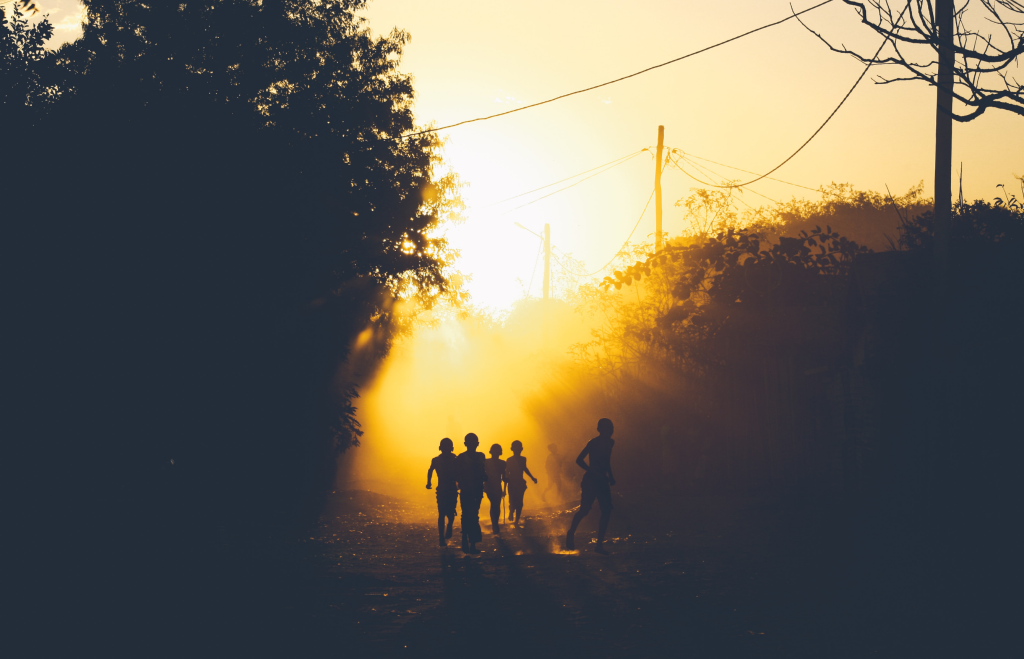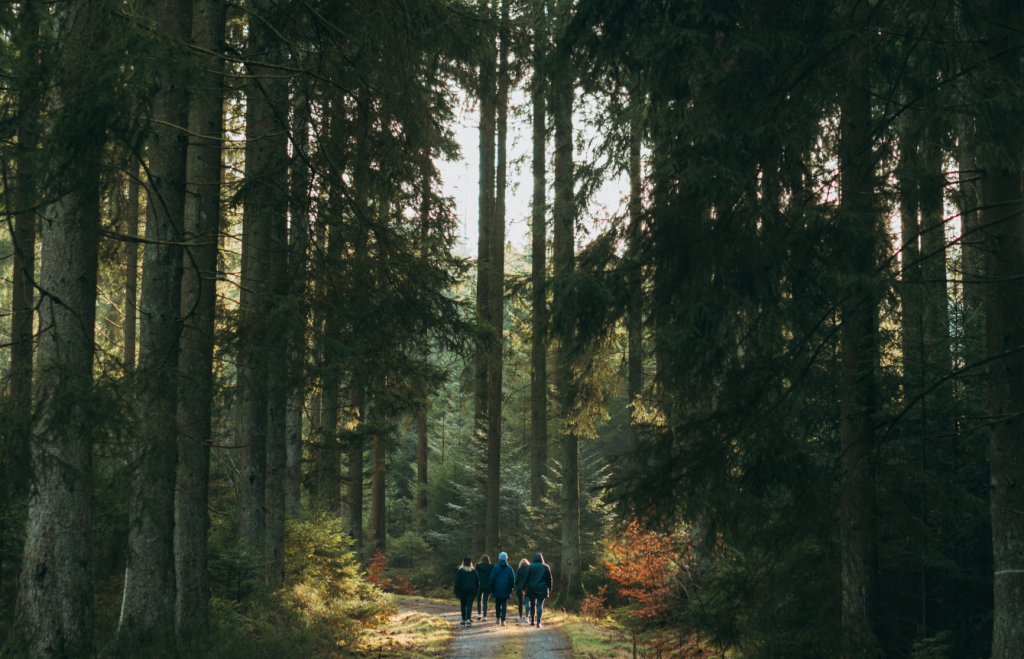Kaamil was born in 2025, in a poor country plagued by conflicts and violence, where intermittent cycles of brutality had become the norm. Because he didn’t know anything different, despite the chaos, he had fond memories of his childhood and teenage years, spent with family and friends with a strong sense of community. He was always running and playing outdoors – to the limit of the yard no one could cross, of course -, exploring new things, and making new friends who would join his community from time to time.
In his twenties, Kaamil realized that most of his memories and life’s milestones were linked to incidents of increased conflict in his community. Like on his tenth birthday, when he had to skip school for three consecutive weeks outside the summer season. At that time, he thought those extra holidays were a birthday present, but now he remembers not being able to leave the house and being bored and actually asking to go back to school. Or when he was thirteen, and his sweetheart had to flee with her family. He was so brokenhearted at that time that he had forgotten that many other friends left too. Or when he was sixteen, and Kaamil’s mother taught him how to cook five different recipes with flour and potato. That day was fun, but after a couple of weeks, no one could bear eating potatoes any longer.
He started having flashbacks of bulldozers slowly sweeping the forest close by and, with it, the wooden fort the neighborhood kids built to hang out in their secret spot away from home. And then old houses, squatted for years by families fleeing the fighting in their villages, being replaced by new buildings; his friends distanced from him again.
This revelation changed how Kaamil understood his reality and that of his people and the society around him. And that was only possible because now, in 2045, and with the accomplishment of a big chunk of the new round of Sustainable Degrowth Agenda – at least in terms of indicators – , there was this sense of a looming quiet peace, that was quite contrasting to everything Kaamil knew as a boy.

While Kaamil’s parents’ generation yearned for a different brighter future, he felt the world around him was more abated – that exhaustion you feel after a big fight. He had lost his sense of connection. People and places felt alien to him. Everything he knew was no more, except memories of his friend]s. He thought of them constantly. He wondered where they ended up and how they were living their lives. Did they build new forts somewhere else? Have they made new friends? Do they miss him? Do they even remember him? Do they feel as lonely?
Growing up, Kaamil would hear great stories from “Uncle”, one of his father’s oldest and closest friends, about the amazing times before the war. Now that the war ended, Kaamil was eager to finally get to live what he felt like a promise. But whenever he asked why Uncle did not visit them anymore, silence and forgetfulness reigned. “He changed”, the father would sometimes reply. “Why do you always ask? Forget about him…”. His father’s tone of sorrow and blame always stunted Kaamil.
That wasn’t the only way people were changing. They now had to restart their lives in a new setting they didn’t quite grasp and compensate for years lost in suffering and bare survival. They had to power through an unknown future, and just kept getting by no matter the costs.
It was pretty clear to him that the promises of prosperity built on brittle peace were failing. Competition and growth increasingly pitted people against each other in a downward spiral of exploitative practices, bounding individuals to mere functions and widening differences between them. He questioned how the strides made in technology and automation, which promised growth, progress, and abundance, ended up making people poorer and more vulnerable, putting their lives and the planet at risk.
New economic models turbo-charged by new technologies rendered work more extractive and wildly replicated existing hierarchical structures and systemic disparities vis-à-vis the same vulnerable societal groups. Working ever harder and longer with the support of technology led to finding oneself stagnant, if not in worse conditions. Which in turn flared up sentiments of resistance, resentment, and anxiety to the perceived progress.
Kaamil was pained to see yet another generation’s potential dwindling away, but what could he do to break the cycle? His questioning grew into a sense of responsibility and commitment to understanding how people from different communities, geographies, affiliations, and generations perceived their mutual relations. He was obsessed with understanding how the past was still shaping realities and affecting people’s daily lives. He was sure he was not the only one feeling the post-traumatic effects.

On his thirtieth birthday, and forever missing his friends, Kaamil started creating safe spaces of discussion and exchange within his community. He was determined to pave the way for a society-wide deeper harmony. He knew that it had to be rooted in justice and reparation as the means for true forgiveness and a genuine will to move towards a fair, equitable, and sustainable future for all.
And they managed to achieve significant progress in the past two decades. The acknowledgement of a shared generational anxiety became a driving force for vulnerable groups to organize and create systems of production informed by their aspirations and values. These systems were founded on the collective creation of income and wealth, shared ownership, and democratic governance. Systems centered around individual and community well-being, that cater to the most vulnerable first, supported by open and available technologies. Systems where the sense of (self-)value is reframed to benefit the group, the whole. Where co-creations are centred on the needs of the next generations. Systems that build on learning and unlearning from the past.
Today, Kaamil is celebrating 50 years old. As the adults eat organic homemade cake and laugh in his living room, he looks at his 10-year-old daughter Yasma playing with friends outside. They are building a wonderful treehouse – they don’t call them forts anymore. And Kaamil wonders what they will be soon discussing in that safe space. There is still so much to be figured out!
“What imaginaries can we help them build to ensure they don’t experience what my generation did? Now that we finally achieved the foundations of sustainable peace, what might they look forward to and devote their lives for? Should we aim to conserve what we have and risk stagnance, or move forward and take the risk of unexpected shocks?”
“Dad, dad! Come play with us!”. Kaamil lets his thoughts go for a while and runs towards Yasma.
“Of course, my darling. Did you know that I built a treehouse when I was your age?”
“Yes, dad… you always tell me that!”